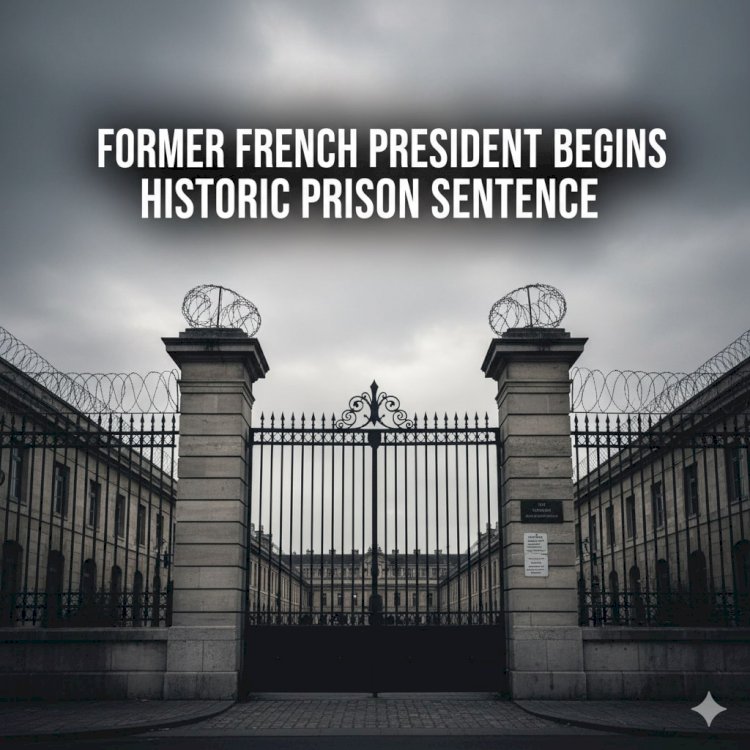Former French President Nicolas Sarkozy Begins Prison Sentence, Marking Historic Day

PARIS, France – Former French President Nicolas Sarkozy began serving a one-year prison sentence on Monday, making him the first former head of state in modern French history to be incarcerated. The unprecedented event follows his conviction for corruption and influence peddling, sending shockwaves through the nation's political landscape.
Sarkozy, 68, arrived at La Santé Prison in Paris under heavy security, where he will spend his initial days. The sentence, handed down by the Paris Court of Appeal in May, consists of a two-year term, one year of which is suspended, with the remaining year to be served under house arrest with an electronic tag. However, the initial phase requires a period of incarceration before transitioning to home confinement.
A Fall from Grace
Sarkozy, who led France from 2007 to 2012, was found guilty of attempting to bribe a high-ranking magistrate, Gilbert Azibert, in 2014. Prosecutors argued that Sarkozy, through his lawyer Thierry Herzog, offered Azibert a lucrative job in Monaco in exchange for confidential information about a separate investigation into alleged illegal campaign financing from L'Oréal heiress Liliane Bettencourt.
The case, often referred to as the "wiretapping affair," relied heavily on intercepted phone conversations between Sarkozy and Herzog, using pseudonyms to evade detection. Both Herzog and Azibert were also convicted and received similar sentences.
Political Reactions and Public Opinion
Sarkozy's legal troubles have been a long-running saga, deeply dividing public opinion. His supporters decry the conviction as politically motivated, a "judicial harassment" aimed at silencing a prominent figure. Many on the right have expressed outrage, claiming the justice system has been weaponized.
Conversely, anti-corruption advocates and many on the left have hailed the ruling as a testament to the principle that no one, not even a former president, is above the law. They see it as a crucial moment for accountability and a strengthening of democratic institutions in France.
What Lies Ahead
While this marks a significant turning point, Sarkozy's legal battles are far from over. He still faces two other major trials: one concerning allegations of illegal financing from Libya for his 2007 presidential campaign, and another related to the so-called Bygmalion affair, where his 2012 campaign is accused of exceeding spending limits using fake invoices.
For now, the image of a former president entering prison will remain etched in the collective memory of France, forcing a nation to grapple with questions of power, justice, and the integrity of its highest offices. The world watches as France navigates this unprecedented chapter in its political history.

 content-team
content-team 


















